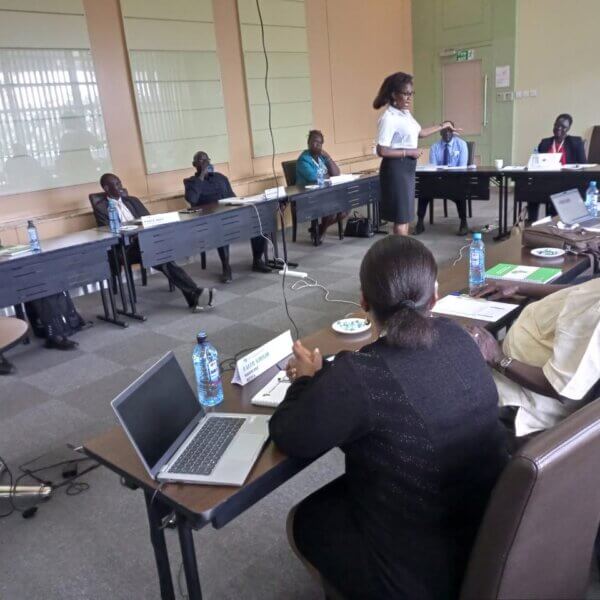The Training of Trainers (TOT) Course
The Training of Trainers (ToT) Conference
The main goal of the ToT model is to prepare instructors to present information effectively, respond to
participant questions, and lead activities that reinforce learning.
Course Objectives.
By the end of this course participants will be able to;
✓ Understand the major principles of adult learning
✓ Learn how to apply existing theoretical and practical skills on training
✓ Learn how to systematize gained knowledge and develop training curricula and materials to train participant
✓ Understand how to define learning objectives for each of the training sessions, objectives, criteria and standards for assessing the performance of the student, types of objectives, etc.
✓ Learn about icebreakers techniques and how to interact with audience in an informal way
✓ Learn about presenting information and preparing power point presentations, review major challenges and how to avoid the
✓ Learn how to prepare and present case studies, visual materials, ask and answer the questions
✓ Learn how to design course and choose appropriate format of the lecture
✓ Understand major principles of experiential learning and use of role play exercises • Understand how to apply new knowledge into practice.
Main Training Modules
Principles of Learning
✓ What is learning and how do we learn?
✓ Acquiring relevant knowledge. Thinking for understanding. Doing.
Introduction to Training
✓ What is Training?
✓ Training VS Facilitation
✓ Adult Learning Principles
✓ On-the-Job Training.
✓ Classroom Training VS. Virtual
✓ Training
✓ ADDIE Model.
Factors affecting learners and the learning process.
✓ Utilize and stimulate senses.
✓ Recognize the learning curve.
✓ Don’t abuse the attention span.
✓ Encourage the effective use of memory.
✓ Try to motivate students in their learning.
✓ Accommodate different learning styles.
✓ Ensure effective feedback in the learning process.
Lesson Planning and Preparation
✓ Producing a structured lesson plan.
✓ Learning objectives.
✓ Lesson content.
✓ Instructional methods.
✓ What teaching and learning resources will you need? Assessment.
Analysis Models
✓ Training needs analysis
✓ Needs identification
✓ Tools of TNA
✓ Audience analysis
✓ Is Training the Solution?
✓ Design Models
✓ Learning Styles: VARK Model
✓ Kolb Learning Styles
✓ Learning objectives.
Learning Methodologies
✓ Lesson Plan & ROPES Model.
✓ Training Session Structure.
✓ MSCW Model.
✓ Types of Content & Information Sequencing.
✓ Development Model
✓ Creating Presentations & Handouts.
Assessing Learners Performance.
✓ The criteria for good assessment.
✓ Validity. Reliability.
✓ Key terms used in language of assessment.
✓ Summative assessment. Formative assessment. Assessment scheme.
✓ Assessment evidence. Assessment methods. Assessment items.
✓ Planning a scheme of assessment.
✓ Why assess? What to assess? How to assess?
✓ How to interpret the products of assessment?
✓ How to communicate assessment decisions to learners?
✓ General principles in test construction.
✓ Types of assessment items.
✓ Alternate response or true-false items. Multiple choice items (MCQs).
✓ Matching items. Completion type items. Essay type items.
✓ Performance tests.
Evaluating Teaching and Learning.
✓ What is evaluation?
✓ What aspects of the course are to be evaluated?
✓ Types of evaluation.
✓ Collecting evaluation date.
✓ Sources of evaluation data.
✓ Responding to significant feedback from evaluation.
✓ Typical concerns or problems that emerge from course evaluations.
✓ Preparing end of course report. Content of report. Format of report.
✓ Identifying and planning instructor’s own development
Way forward After the Training
Participants will develop a work plan through the help of facilitators that stipulates application of skills
acquired in improving their organizations. ASPM will monitor implementation progress after the training.
Training Evaluation:
Participants will undertake a simple assessment before the training to gauge knowledge and skills and another
assessment will be done after the training in-order to demonstrate knowledge gained through the training.




